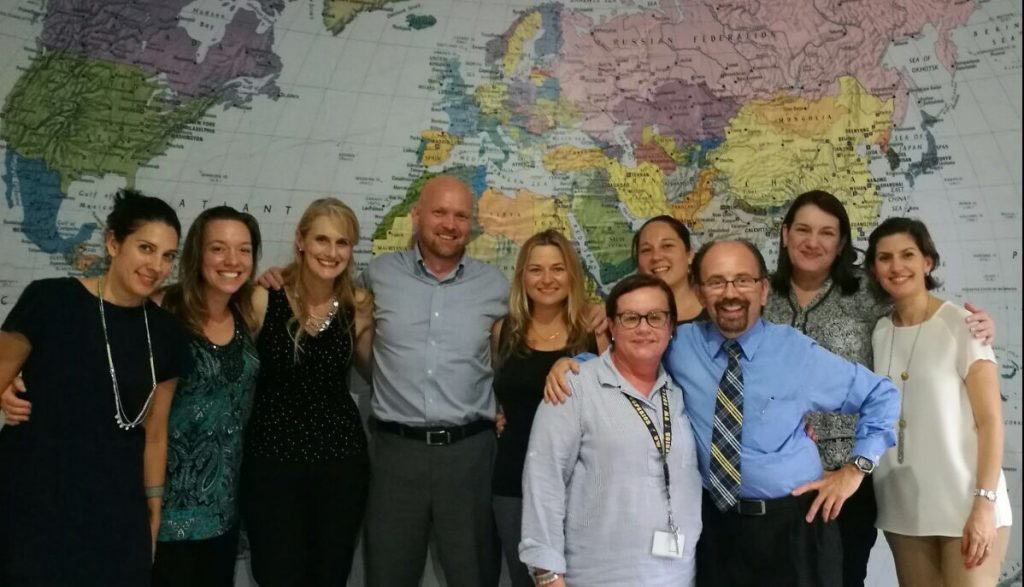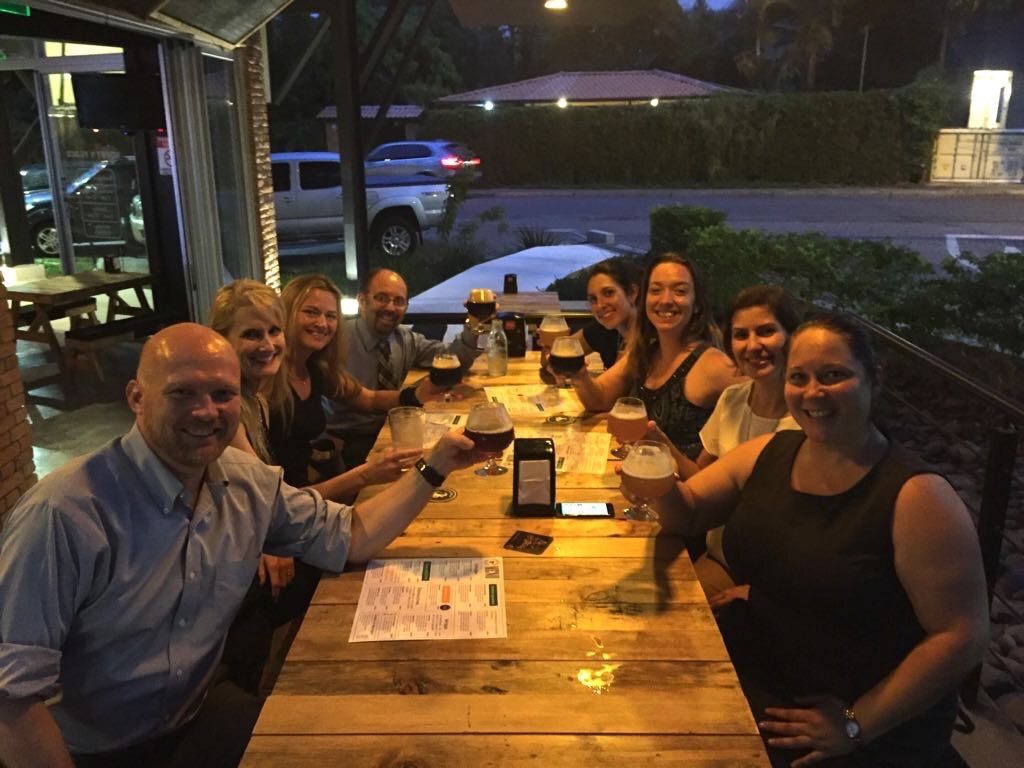
As careers and university guidance counselors, it has been said that our profession leans towards a vocation. There is an acutely human side to being a counselor – it’s the reason we remain in the profession despite longer work hours, more students to support, or increasing uncertainties about global student mobility in key regions.
It’s not just professional development or training that has helped us navigate the changing landscape of higher and further education – it’s also the advice, honesty and collaboration of colleagues on “both sides of the desk” : counselor and university admissions folk alike.
The unique facets of international guidance counseling tend to bind us, creating friendships, alliances and mentorships. Any guidance counselor reading this will hopefully agree that it is our network that helps us deal with ever-changing needs of our students, their parents, and the universities we send them to.
We counselors tend to have a lot on our plates. Critical deadlines, pressure from our heads, boards and trustees to help students land places at ever-more competitive universities, teaching responsibilities, extra-curricular clubs, evening or weekend university fairs, parent meetings, departmental meetings – the list goes on.
Most counselors I know will recognise these myriad pressures on our profession.
Some of us may have the good fortune to work within well-equipped private schools, with travel budgets to attend professional development conferences, with teams of counselors, or even an office assistant to help make appointments and file paperwork.
But many do not – and many of us might do another job alongside the crucial work of university counseling.
All of us, however, who brave more than one application cycle in the role, start to understand the huge benefits of working in international education: a sector which can still feel protected from the ever-present need for ROI, or structures aiming for never-ending profit for shareholders.
One of the enduring pleasures of being a counselor is the chance to make connections with our peers and colleagues, as well as the keeping these connections through career changes, or a move to a new region or country.
This ensures that when a group of international educators get together, the conversation will flow, ideas will be borne and some aspect of our work that we did not know how to address alone will be solved by the hive mind of a true counseling community.
Why fostering a counseling network is so important
I am a huge advocate of the forming of local and global counselor networks: the more diverse the pool of ideas, generally the better the outcomes and the faster everyone gets a reply to their question (as we know, it can sometimes be excruciating trying to find answers alone, or on a tight deadline).
The first, and possibly most effective counselor network I was an active part of was in San José, Costa Rica.
The Costa Rica Association of College Admissions Counselors (CRACAC, as we became known – much to the delight and laughter of our visiting university reps) was formed a couple of years before I joined my school and was an inherited membership. We met once a term, aiming for 2-3 meetings of up to two hours each academic year.
Each member school hosted in turn, battling sizeable traffic jams crossing the capital to discuss everything from scheduled college visits to the creation of a shared Facebook page, to managing Google Drive.
In those meetings, we tackled things that most “competitor” schools would never have discussed: our calendar clashes, how we formulated our transcripts, acceptance rates, independent counselors working in our region, local and national news, international politics and economic changes, visa applications, jobs, proposals for joint conference proposals, until we often veered off into chatting about our families and weekend plans.
With each meeting, we grew closer as a unit that shared information and relied on one another for professional development and support. A WhatsApp group formed for quicker replies to things than in our overstuffed email inboxes. We saw each other as anything but rival schools, and increasingly met on Friday afternoons so that we could close proceedings with happy hour drinks!

Co-operation trumps competition
Some heads of school might not like, or indeed countenance this “sleeping with the enemy”.
They may see local schools as competitors from whom all secrets must be heavily guarded, lest they be stolen. This kind of scarcity mindset might work for sports teams who need to plan their strategies, but it rarely works in the world of highly selective college admissions.
Instead, it’s important to adopt a growth mindset and realise that schools sharing their admissions information and statistics may even help to support future students in a region is key.
If your own school leadership needs some convincing, then make sure they understand that working together as a group of schools with a common goal – say, of attracting visits from more selective universities to please school boards and parents – can ensure that college reps know exactly why a visit to your region will be worth their time and resources
Top tips for building your counselor network
So, now that you can see the benefit of having a local network of likeminded counselor, how does one go about building one?
• Check everyone’s availability
This might be painful at first – we are all mega busy during the school year after all, but persevere in having a date that as many joint collaborators as possible can make. Sites like Doodle.com can take some of the pain out of finding a common date and time that works for the majority.
• Set a pre-determined, collaborative agenda
Counselors as a rule love to talk, especially anecdotally. Ensure you have a set list of things to cover and a kindly timekeeper to ensure the discussion stays on track so no one feels their time has been wasted.
• Assign tasks for the next meeting (with self-nominated project leads)
This will get easier with time and when everyone knows one another’s skills and strengths, but if you need to gather information for a joint website, facebook page, or plan an event together, the idea is likely to get others excited but the administration of the idea may not. Ensure you have milestones set out that everyone feels some accountability for.
• What is shared at meetings should (broadly) stay in those meetings
Of course you may feed headlines to your leadership team, but never break the professional confidence of a group who are offering their help and intelligence to ultimately help you and your students and families know more.
Don’t be tempted to gossip or name individual students, teachers, or colleagues. The world of international education is small, and people change roles often. If you want others to share and collaborate their successes and failures with you, you have to remain loyal to your counselor cohort.
• Get to know one another outside of work talk
This might take the form of drinks after your meetings, or you could plan to attend the same conferences so that you get a chance to unwind a little. Collaboration that happens when people are outside of their normal context tends to be powerful, and new thoughts and questions arise when we all leave our desks.
• Build a Global List of Trusted Contacts
Try to grow your network of collaborators and take steps to widen your knowledge base wherever possible. The goal should be to have a global list of trusted contacts that can help you answer questions you have no idea about on your own.
For example, when a student comes in and tells you they want to apply to a public Spanish university and you realise you have no idea about how to “homologar” your national curriculum results, you can take comfort in the fact that you have a supportive network to fall back on!
If you want to try and take your local network global, this can be done in a variety of ways. If you’re not already a member, think about joining professional bodies such as as the International Association for College Admissions Counselors (IACAC) and the Council of International Schools (CIS). It’s worth attending their annual conferences if budget permits, or joining their associated Facebook groups.
Soon you may discover you have more resources at your disposal than you think. With a group of supportive, knowledgeable contacts both in your local region and spread out around all corners of the globe, you and your students are primed for success.
